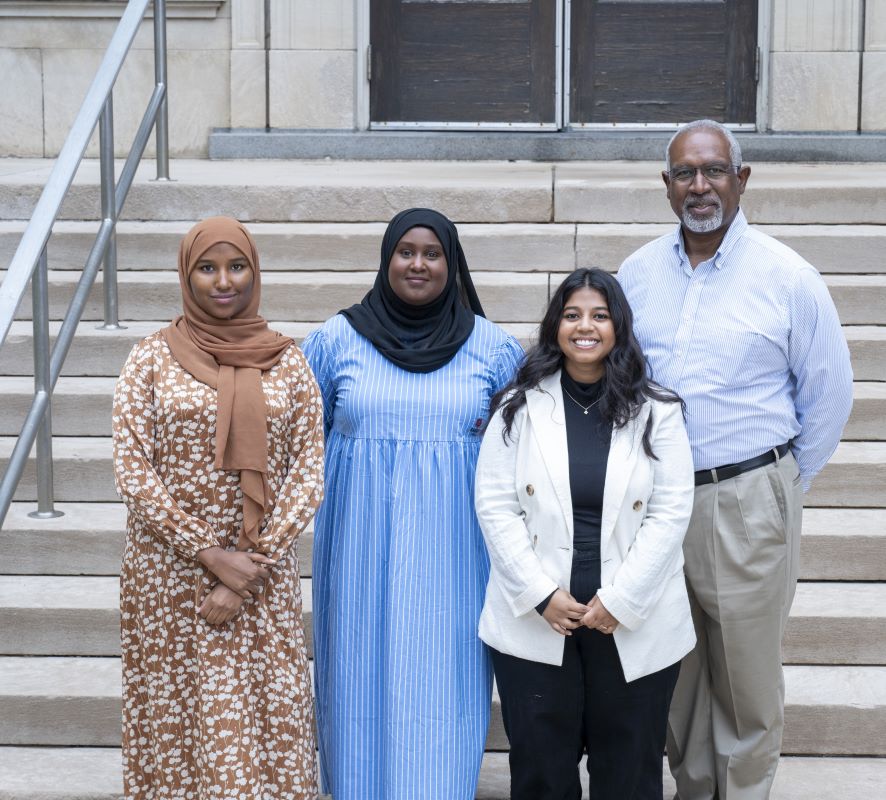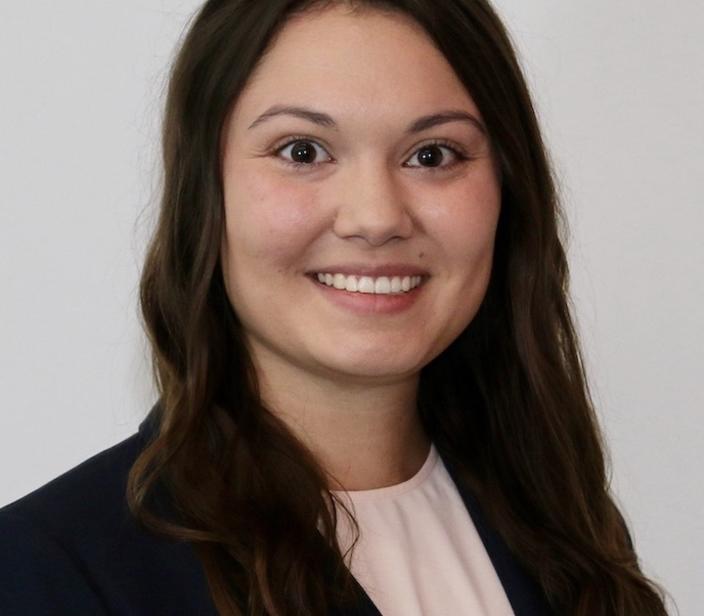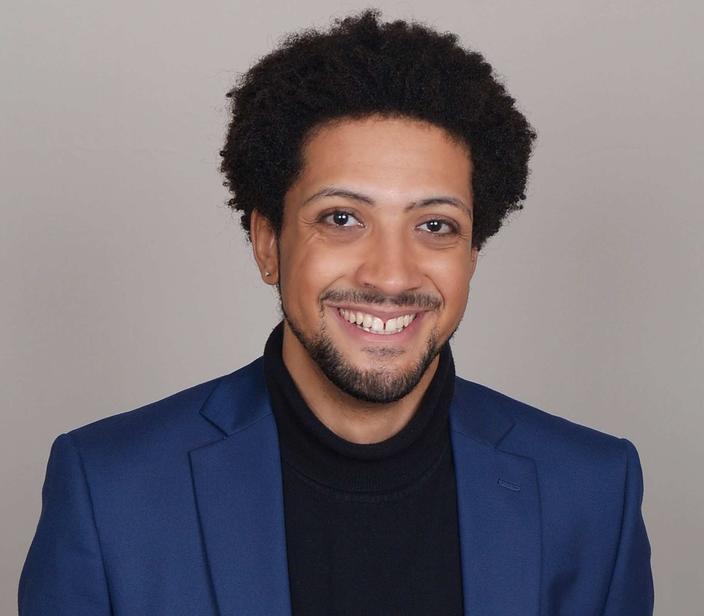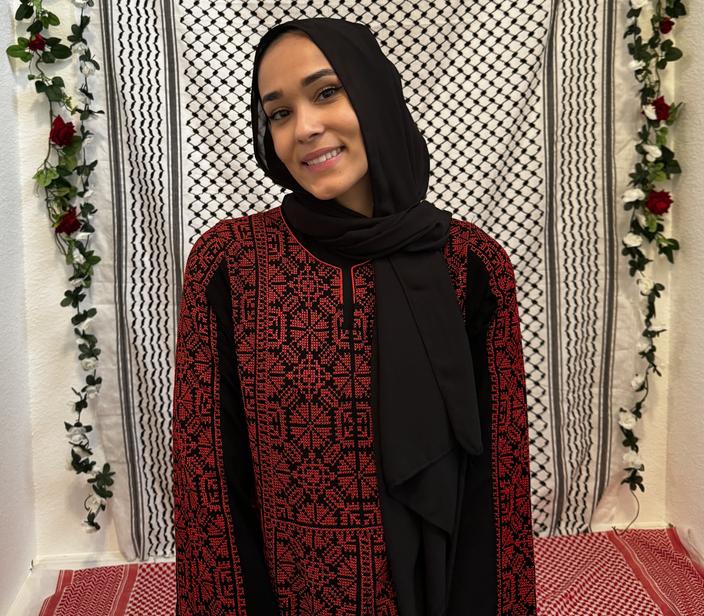Undergraduate Program in Human Physiology

The goal of the Human Physiology major is to help students understand the function of individual human organ systems, appreciate the interdependence of organ system function and relate homeostatic regulation to health and disease in the human body. This knowledge is gained by pursuing systematic studies of cells, tissues, organs and animals. The Human Physiology program places an emphasis on understanding the underlying mechanisms of these systems within mammalian organisms in terms of the biological, chemical and physical laws that govern them. This integrative approach, spanning the basic science spectrum, places the discipline of human physiology at the forefront of the education of future health science professionals.
The Human Physiology major can accommodate students interested in any a variety of fields related to health and biological sciences. The flexibility of our course of study allows students to tailor their coursework to their academic and career interests. Our graduates can be found in graduate and professional degree programs across the spectrum of the basic and clinical sciences. We encourage you to explore our program and consider Human Physiology as you choose your undergraduate major. The major leads to a B.A. degree through the College of Liberal Arts.
- Vincent Barnett, Director of Undergraduate Studies
Courses
The flexibility of our course of study allows students to tailor their coursework to their academic and career interests.
All course offerings are available on Schedule Builder while registration is completed through OneStop.
Declaring your Major or Making an Advising Appointment
Prospective majors: Declaring Human Physiology as Your Major
1. Reserve an appointment using our online scheduling link: Human Physiology Major Appointments
• If you would prefer a telephone meeting please let us know.
• If you cannot find an advising appointment that fits your schedule, please contact Dr. Barnett to request a specific date and/or time.
2. Requests for appointment times that are not on the calendar will be accommodated whenever possible. In preparation for your major declaration meeting, please complete our Education Background Form and email a copy of it to the adviser you are scheduled to meet.
Human Physiology Major Advisers:
Dr. Vincent Barnett, Ph.D.
barne014@umn.edu
Director of Undergraduate Studies
Dr. Dalay Olson, Ph.D.
hirs0101@umn.edu
Dr. Steven Wu, Ph.D.
scwu@umn.edu
Current majors: Make an Advising Appointment
Advising appointments can be reserved online by using the following link:
Human Physiology Major Appointments. If you cannot find an advising appointment time slot that fits your schedule on our calendar, please contact one of the advisors to request a specific date and/or time. Requests for appointment times that are not on the calendar will be accommodated whenever possible.
To drop off forms or pick up information:
Dr. Barnett's Office Location: 3-136 Jackson Hall Phone: 612-624-8135.
Anonymous Feedback on your visit with a Human Physiology major advisor
In addition, the Department of Integrative Biology and Physiology would very much appreciate you filling out a short questionnaire rating your meeting(s) with our advisors. Thank you!
Post-baccalaureate Opportunities
Employment
The Human Physiology degree is intended primarily as preparation for graduate or professional study. If supplemented with several laboratory courses as well as laboratory experience, the B.A. degree may be adequate for obtaining an entry-level position such as a laboratory technician or research assistant. When combined with a degree in fields such as chemistry, electrical engineering, or computer science, the B.A. in Human Physiology could be helpful in obtaining positions in the biomedical industry.
Graduate Study
The undergraduate major is flexible enough to allow the student to prepare for post-baccalaureate study in Physiology, Neuroscience, Biochemistry, Pharmacology, Cell Biology, and other areas of biomedical science.
Professional School
The major is often chosen by students planning to continue their education in health fields including, but not limited to, medicine or dentistry. There is considerable overlap between the requirements for the physiology degree and the admission requirements of many professional schools.
Notes for Physiology Pre-Meds
Is medicine the right career for you?
Find out about medicine as a career and make a decision to apply to medical school based on your informed interest.
At a minimum, you should enjoy biology and have a real desire to be involved in the treatment of human disease. Clinical medicine involves dealing with people, often in situations that require great discipline but may sometimes lack glamour or even intellectual challenge. Medical schools will look for evidence that helping people with health and other problems is a natural part of your life. This is important not only for the quality of the contribution that you can make to medicine, but also for your own satisfaction with the career.
Do you qualify for medical school?
Develop excellent academic credentials. You must make very good grades. Take your courses very seriously from the beginning of your undergraduate experience. You should also structure your undergraduate program to include certain courses. There are two reasons for this. First, medical schools expect these courses to be on your transcript. Second, you need appropriate background to do well on the Medical College Admission Test (MCAT). The coursework required for the physiology major is essentially a subset of "pre-med" courses, making the major an excellent choice for students who are interested in medical school.
Keep in mind that when you apply to medical school, you will also need letters from individuals who know you well and who can strongly support your application. Begin early to develop relationships with people who can provide this support. The best letters will come from well-respected individuals who are in a position to evaluate you critically and fully, who strongly believe in your potential, and who have experience and skill in writing letters of reference. A good example would be a class professor with whom you also did a special laboratory or library project. The longer and the more extensive your relationship, the more valuable his or her letter will likely be.
Have I done all I can do to prepare myself?
Get complete advice from the right sources as early as possible in your academic life.
Programs & Organizations
UMN Undergraduate Physiology Society
The Undergraduate Physiology Society (UPS) or (U-PHYS) was founded in 2009. We are student-governed, and affiliated with the Department of Integrative Biology and Physiology, with Dr. Barnett as our advisor. Although many members are Human Physiology majors, this is not a requirement for membership, and we encourage non-majors to attend our meetings and events.
American Physiological Society (APS)
The American Physiological Society (APS) is a nonprofit devoted to fostering education, scientific research, and dissemination of information in the physiological sciences.
Howard Hughes Medical Institute (HHMI)
The Howard Hughes Medical Institute (HHMI) is a nonprofit medical research organization that ranks as one of the nation’s largest philanthropies. HHMI plays a prominent role in advancing biomedical research and science education in the United States.
Institute for Mathematics and its Applications (IMA)
The Institute for Mathematics and its Applications connects scientists, engineers, and mathematicians in order to address scientific and technological challenges in a collaborative, engaging environment, developing transformative, new mathematics and exploring its applications while training the next generation of researchers and educators.
Council of Graduate Students (COGS)
The Council of Graduate Students (COGS) is the student governance organization representing nearly 10,000 graduate students at the University of Minnesota, Twin Cities. Its mission is to advocate on behalf of graduate students and for graduate education within the University community, and to ensure graduate students -- who are integral to the support of the research and teaching enterprises of the University -- are fully supported by their advisors, departments, colleges the Graduate School and the University at large.
The Science Coalition (TSC) is a non-profit, nonpartisan organization of 50 of the leading public and private research universities in the United States. TSC is dedicated to sustaining the federal government’s commitment to U.S. leadership in basic science.
May 2024
The students highlighted below are from the augural BA/MD Scholars Program cohort which was launched in 2017, the BA/MD Scholars Program provides a unique pathway for a small cohort of high-achieving high school seniors to become physicians. The program invites students from rural areas and medically underserved communities, first-generation college students, and those from economically disadvantaged backgrounds who express an interest in meeting the health care needs of Minnesota’s diverse patient population to apply. Full story here.


